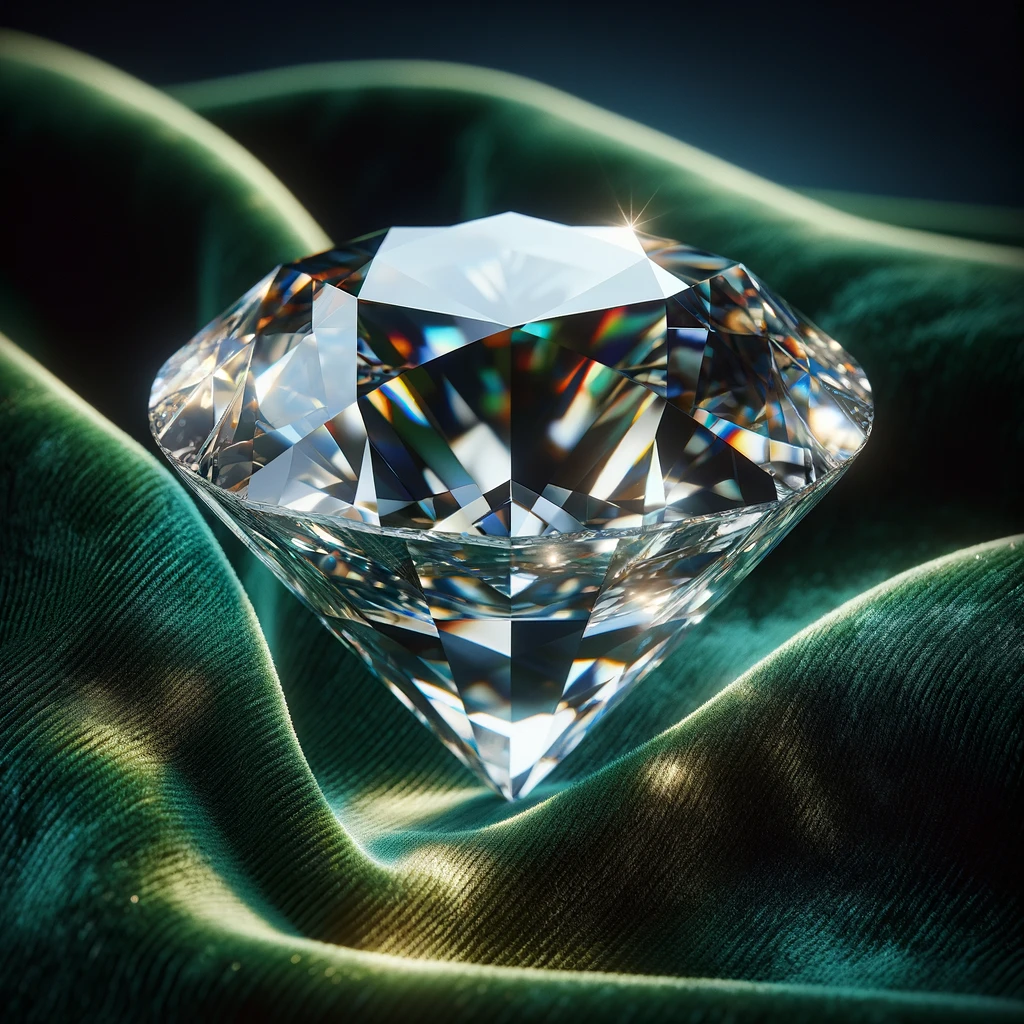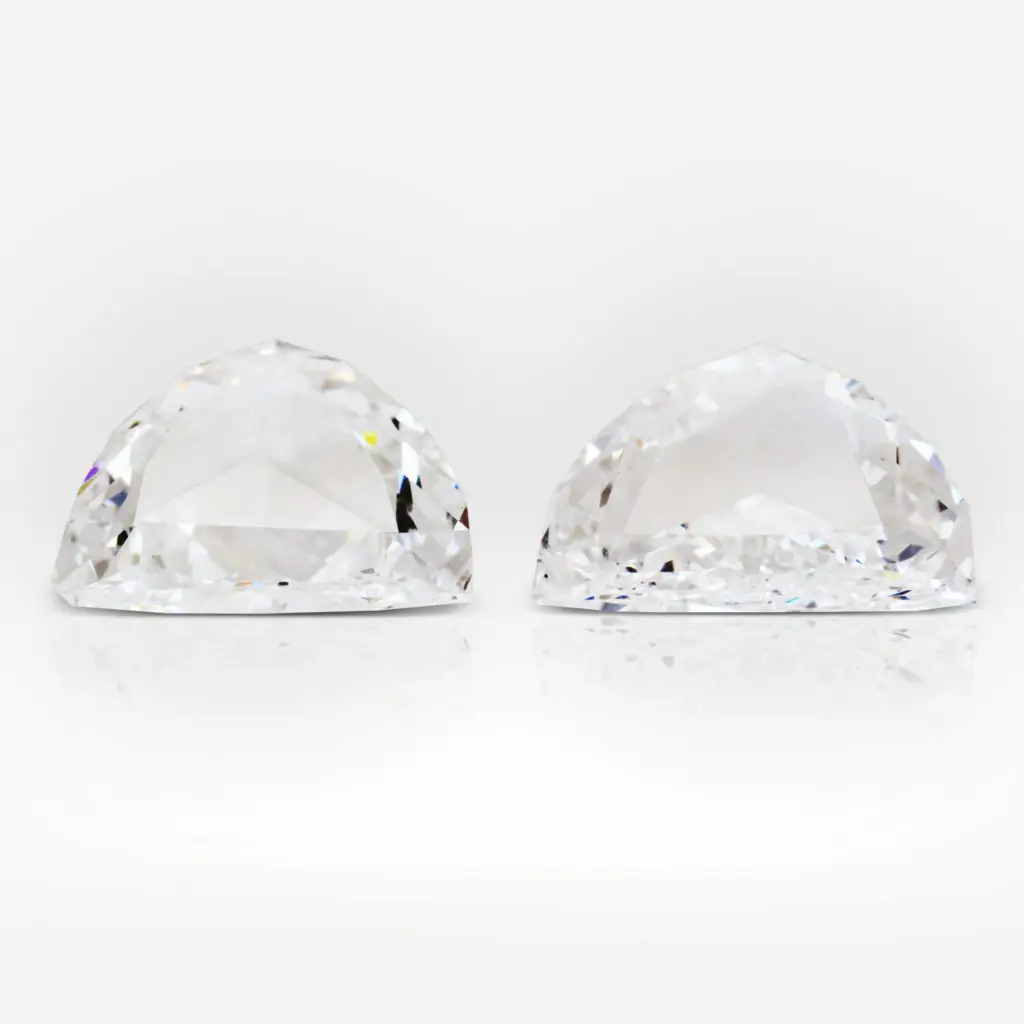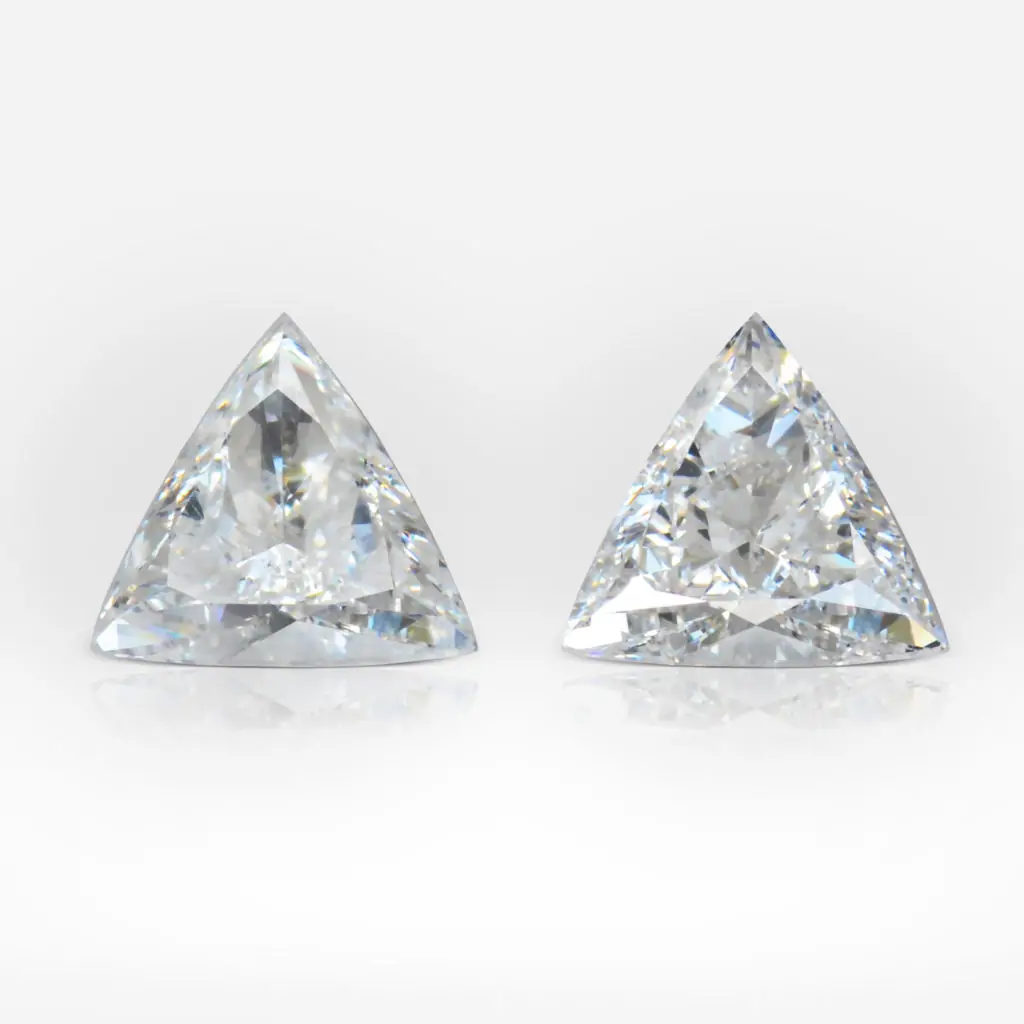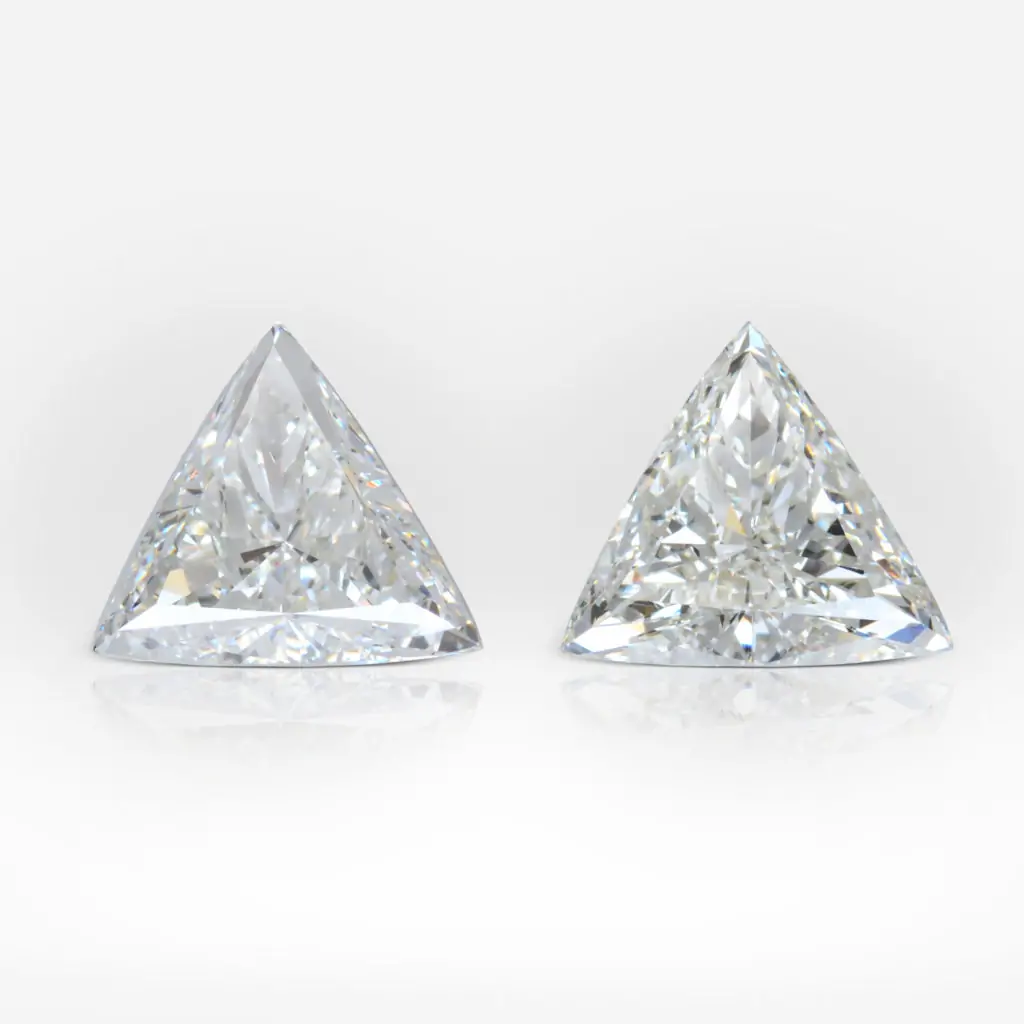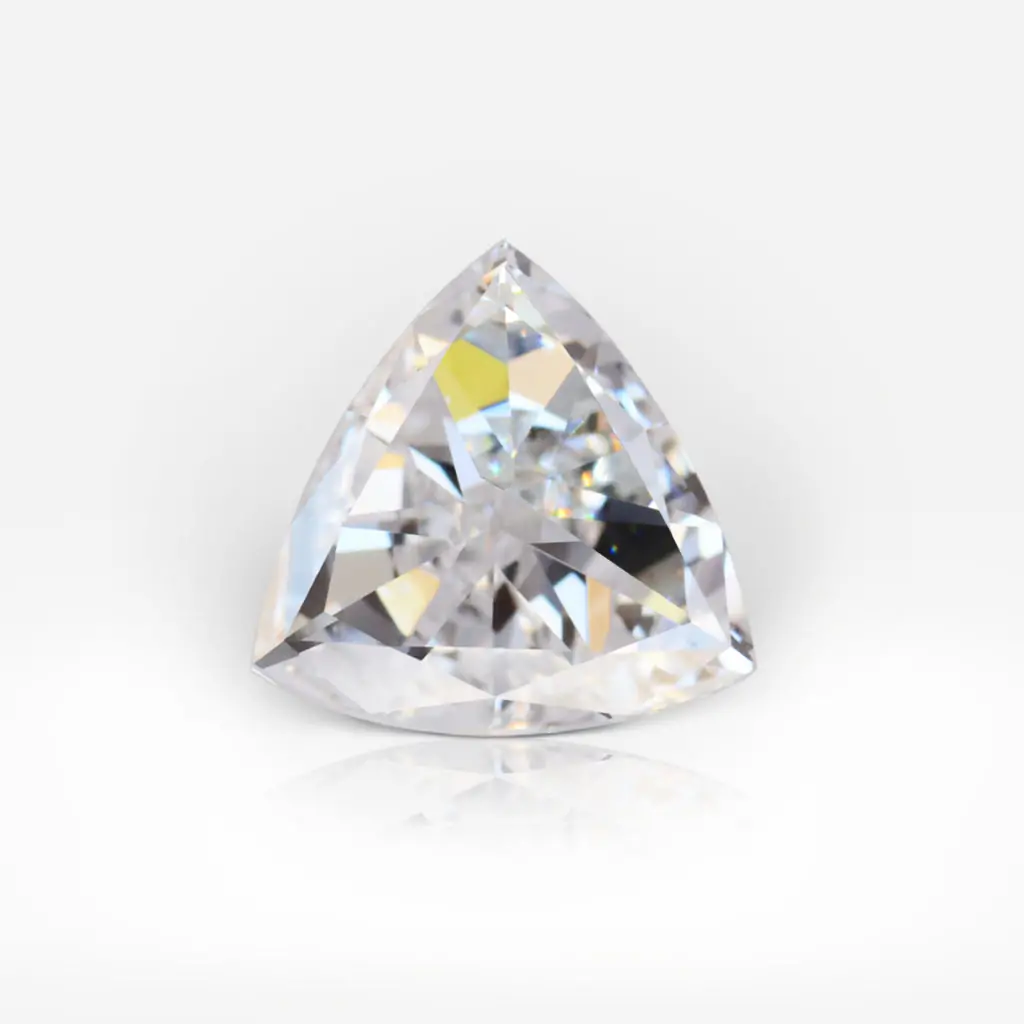Frequently Asked questions
A loose diamond is simply a diamond that hasn’t been set into a piece of jewelry yet. It’s a raw, uncut stone, ready to be transformed into something beautiful.
Loose diamonds are the foundation of many stunning pieces, from diamond engagement rings to elegant bracelets, necklaces or eternity bands. They’re also used to create custom jewelry, allowing you to express your unique style.
Shop loose diamonds and you’ll have the opportunity to choose your diamond from a wide variety of shapes, sizes, and qualities. Whether you’re looking for a brilliant round diamond, a classic emerald cut, or a sleek princess cut, loose diamonds offer incredible customization possibilities.
No matter what kind of diamond you’re searching for, a loose diamond is the perfect starting point to create a timeless treasure that you’ll cherish forever.
Conflict-free diamonds are diamonds that have been ethically sourced, meaning they were not mined in areas where the proceeds funded armed conflict or human rights abuses.
While natural diamonds are often associated with these ethical concerns, conflict-free diamonds offer a solution. These diamonds with a clear, traceable origin are a responsible choice for you if you want your diamond to reflect its values.
There are two main types of conflict-free diamonds:
- Natural Conflict-Free Diamonds
These are natural diamonds that have been mined in areas where ethical practices and responsible sourcing are strictly enforced. You can find the perfect conflict-free natural diamond by looking for certifications from reputable laboratories, e.g. GIA .
- Grown Diamonds
These are grown diamonds created in a lab, offering a completely conflict-free alternative. They’re chemically, physically, and optically identical to natural diamonds, but more affordable and environmentally friendly. However, at Reuven Veksler we never deal with grown diamonds.
Whether you choose a natural or grown conflict-free diamond, it’s vital to understand the certifications and guarantees that come with it.
A conflict-free diamond will sparkle beautifully and reflect your commitment to ethical sourcing. It’s a diamond that has been responsibly sourced and will embellish your diamond engagement ring or other pieces of jewelry that will complement women’s wedding outfits.
To find the perfect diamond you have to consider many factors, like symmetry, fluorescence, 4Cs, color grade. All that stuff canmake your head buzz, so we always recommend starting with your budget. Calculate how much you are willing to spend and what your limit is, after which you will definitely not be able to spend more.
The best diamond is the one that fits your expectations and budget. Of course, we recommend considering only natural stones, as they are time-tested symbols of nature’s majesty and beauty
Selecting the ideal diamond for your jewelry can be a daunting task, but it’s also an exciting adventure! With so many options in the world of diamonds, it’s important to understand the key factors that will influence your choice.
Let’s imagine you are eager to purchase a ring. First of all, determine your ring style.
Think about the style of jewelry you want. Is it a classic engagement ring, a delicate ring, or a statement piece? The setting and design of your ring will influence the diamond’s shape, size, and overall look. Secondly, never forget about 4Cs. Keep in mind that a good cut will ensure that light reflects beautifully from the diamond. In addition, diamonds with a higher color grade (closer to D) appear whiter when exposed to light. You can find beautiful diamonds with subtle hints of yellow, especially if you’re on a budget. Moreover, natural diamonds will have some inclusions, but they’re often invisible to the naked eye. Take into account that some diamonds with fluorescence can appear hazy or milky when exposed to ultraviolet light.
With a clear understanding of the 4Cs and your personal preferences, you’re ready to find your dream diamond! Remember that some diamonds may have more noticeable inclusions or a slightly warmer color, but still be beautifully brilliant.
When you’re ready to purchase a certified loose diamond, it’s essential to choose a reputable source to ensure quality, authenticity, and ethical sourcing.
Ensure the diamond comes with a reputable certification from a respected laboratory like GIA, AGS, IGI. At Reuven Veksler, we always provide all necessary certificates and are ready to answer all your questions regarding the origin of your diamond. We do our best to make your diamond buying experience special and unforgettable


